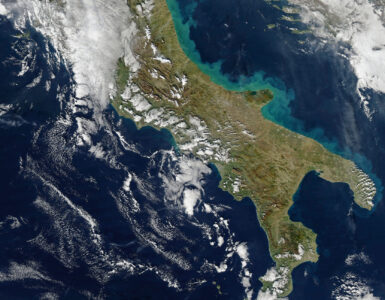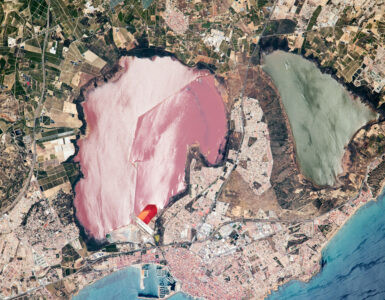ESA hosted the 2023 CEOS SIT Technical Workshop (TW) at ESRIN in Frascati, Italy on 18-19 October 2023. It was the last SIT TW under the ESA SIT Chair term. The two-day hybrid meeting brought together over 80 participants. The workshop provided a platform for working-level discussions to set the stage for key decisions at the 2023 CEOS Plenary.
Here we take the opportunity to provide updates on some developments from the workshop:
CEOS Greenhouse Gas (GHG) Roadmap and MIM Database Portal
The GHG Task Team under WGClimate presented an update on the GHG Roadmap, emphasising the importance of stakeholder engagement. The actions annex of the Roadmap is being actively updated to reflect changes in the space. Of note, the annex now includes actions related to the sustainment of critical GHG cal/val network infrastructure.
The recently published CEOS MIM Database GHG Portal, available at ceos.org/ghg, was unveiled at the workshop. Developed with the support of the GHG Task Team, the ESA SIT Chair and JAXA SIT Vice Chair, the Portal aims to provide a comprehensive and up-to-date list of all current and planned satellite missions with the ability to measure greenhouse gases. This includes those planned and operated by both public and commercial organisations, as well as NGOs.
CEOS AFOLU Roadmap
The CEOS Agriculture, Forestry, and Other Land Uses (AFOLU) Roadmap was prepared to be presented for endorsement at the 2023 CEOS Plenary. The overall objective of the roadmap is to ensure that every country has the land satellite data required to report to the UNFCCC under IPCC guidance.
Ocean Coordination Group (OCG) Initiatives
The Ocean Colour Radiometry Virtual Constellation (OCR-VC) Co-leads presented a proposal for the development of an Aquatic Carbon Roadmap, pending resources and support from CEOS Agencies. The proposed roadmap provides a framework and serves as a guiding vision for long term coordination of CEOS agency observations in support of the need for aquatic carbon information in the context of the CEOS Carbon Strategy. The roadmap will focus on improving models, mapping blue carbon ecosystems, and developing tools and indicators for policy support, while also identifying needs, gaps and challenges and ensuring observation continuity.
Earth Observation Handbook
The 2023 edition of the Earth Observation Handbook, titled “Space Data for the Global Stocktake” aims to develop a broad understanding of the importance of satellite Earth Observation (EO) for all stakeholders in the GST process. The handbook seeks to address the major questions that might be faced by different user types when approaching the application of EO satellite data for their climate-related challenges and reporting obligations. The aim is to provide practical examples and leads for further investigation so that the potential of the data available from the world’s EO satellites is fully realised.
New Space Initiatives
The New Space Task Team has drafted a white paper with proposed recommendations for CEOS Members and Associates to enhance engagement and collaboration with New Space. Calibration and Validation (Cal/Val) emerged as a key area where CEOS can support the New Space sector, with many activities under the Working Group on Calibration and Validation (WGCV) being relevant to increasing the accuracy and quality of EO data. The CEOS-ARD initiative is encouraged to establish mechanisms for deeper engagement with the New Space sector to improve the complementarity and interoperability of datasets, consistent with the CEOS Governing Documents. CEOS Members and Associates are advised to continue to increase engagement with New Space actors on key topics such as ARD, Cal/Val and data quality via CEOS representation at key meetings including VH-RODA, JACIE, IGARSS, LPS and ARD2x. The white paper and recommendations are set for potential endorsement at the 2023 CEOS Plenary.
Ecosystem Extent Task Team and 2024 CEOS Chair Priorities
The Ecosystem Extent Task Team presented a draft white paper that aims to provide an integrated international perspective on how space-based EO can be used to support ecosystem mapping and monitoring with a focus on ecosystem extent. The white paper recommendations cover three thematic areas. Firstly, it highlights the importance of increasing user engagement with EO and CEOS through workshops and other activities to improve ecosystem extent mapping. Secondly, it underscores the need for technical advances to improve the utilisation of EO for ecosystem mapping. Lastly, it emphasises on increasing the capacity of biodiversity users to utilise EO for ecosystem mapping and monitoring.
The 2024 CEOS Chair, the Canadian Space Agency (CSA), will prioritise the theme of Biodiversity during their term, seeking to reach a consensus on whether and how biodiversity should feature on the CEOS agenda in the longer term.
Ocean Coordination Group
The Ocean Coordination Group (OCG) presented two important documents related to Ocean Coordination Activities, marking the final outcome of the OCG before its closure. The first document, titled “CEOS OCG – Coordination Needs for Upcoming Ocean-related Missions” provides a comprehensive list of all upcoming ocean-related missions along with the coordination requirements among these missions. The second document, titled “CEOS OCG – IOC and UN Ocean Decade Activities” lists CEOS Work Plan activities that are either underway or anticipated that support the UN Ocean Decade and the International Oceanographic Commission mission. It includes the points of contact within CEOS and IOC, along with other relevant details. These documents may potentially play an important role in guiding Ocean Coordination within CEOS and benefiting the EO community going forward.
CEOS Communications
The CEOS Communications strategy was presented by the CEOS Systems Engineering Office (SEO) team as part of their communication initiatives for CEOS. The document aims to provide strategic guidance for CEOS Communications including a clear definition of target audiences, a series of campaigns to focus communications efforts on, and an understanding of how to effectively implement communications for CEOS. The document is set for endorsement at the 2023 CEOS Plenary.
WGDisasters Proposals
WGDisasters proposed the establishment of the Global Volcano Early Warning and Eruption Response System (G-VEWERS) and a Pre-operational Recovery Observatory (2024-2026), with formal support sought at the 2023 CEOS Plenary. G-VEWERS is envisioned as a permanent virtual facility for remote volcano monitoring, operating on biennial renewable quotas similar to Supersites. These quotas will be made possible through best-effort contributions from academic institutions, volcano observatories, and space agencies. The aim is to provide a timely response to hazardous volcanic eruptions, track restless volcanoes and conduct background monitoring of quiescent volcanoes. The Pre-operational Recovery Observatory aims to enable the operational use of Earth observation for Post-Disaster Needs Assessment (PDNA), recovery planning and then monitoring and evaluation of disasters.
Leadership Transition and Recommendations
JAXA will be welcomed as the CEOS SIT Chair for 2024-2025 at the 2023 CEOS Plenary. NASA is nominated as the CEOS SIT Vice Chair during this term, followed by the CEOS SIT Chair from the 2025 CEOS Plenary.
Overall, the workshop highlighted CEOS’s commitment to advancing global Earth observation initiatives and fostering collaboration among space agencies. ESA expresses gratitude to all participants and contributors for their support during its tenure as the CEOS SIT Chair and extends best wishes to the incoming SIT Chair and SIT Vice Chair Team.
 Image: Pasta-making class, hosted by ESA
Image: Pasta-making class, hosted by ESA
ESA SIT Chair Team






